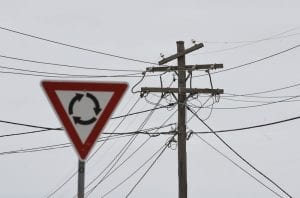The hounds are at it again. The country’s biggest business groups, vested interests, the Opposition and mainstream business commentators are all calling for complementary green schemes to be dumped. Rescind the renewable energy target, can the Clean Energy Finance Corp, and – while you’re at it – dump the carbon price too, or at least cut it to $10 where it’s small enough to be inoffensive.
As usual, these arguments are only ever justified if you either don’t believe in climate change, or, like Bill Gates, you believe that the only way to solve the problem will be through some sort of geoengineering – like sticking giant vacuum cleaners in the sky or deploying massive sun shields above the Earth.
The push for a low carbon price is counter-productive – and short-termism at its worst. It will almost certainly lead to greater costs in coming years. As numerous economists – from Stern to Garnaut and the IEA’s Fatih Birol, and now the RBA’s Jillian Broadbent point out – the greater the effort now, the cheaper the task of abatement will be in the long term. But that message is a hard sell in the world of the political sound-bites and tabloid headlines.
Europe, the world’s carbon pricing guinea pig, is now finding this out at its own cost. The plunge in its carbon price to near record lows is discouraging investment in lower carbon technologies, and locking in more new capital in higher-emitting investments. Ultimately, that will make it costlier to unravel and meet more ambitious reduction targets that will be inevitable.
Deutsche Bank’s European energy and carbon analyst Mark Lewis noted that this week that the biggest beneficiary of Europe’s failure to adopt the necessary policy and regulatory measures to boost their flailing carbon price (which is near record lows because of the EU’s economic decline and because its abatement targets will be easily met) is the gas industry. This was because the lack of long-term price certainty meant that the enormous capital outlays required for the transition to a low-carbon future were not being met.
“The most likely default outcome will be an EU-wide dash for gas over the second half of this decade,” he wrote. He said this had implications for the EU’s long- term emissions trajectory, its security of supply, and the efficiency of EU power markets. “In other words, there will likely be an over-reliance on gas for new generation capacity, and a need for costly complementary measures in any member state wanting to incentivise low-carbon generation.” He pointed to the UK’s Carbon Price Support Rate, which was introduced by the UK government to provide a carbon price floor in the energy sector to try to ween the industry away from fossil fuels.
Australian industry groups should read that note carefully. It’s all very well to argue that a carbon price means complementary measures are not needed, but as Garnaut and others have pointed out, that is only valid when the carbon price is robust and reflects the science and the long-term policy objectives. And the Australian carbon price is a long way short of that.
Lewis says that without substantial reform, the EU carbon price will remain essentially meaningless as a signal for new low-carbon investments. His view was supported by analysts from Bloomberg New Energy Finance, who said in a separate note this week that having low carbon prices now will most likely increase the future cost of abatement.
“The cheap cost of carbon is not only locking in emissions from increased short-term coal-burn, but also threatening a long-term technology lock-in, whereby the market invests in more carbon-intensive technologies than they would if the carbon price had been higher,” it said.
“If the cap continues to decline at its current rate to 2050, then the EU will require a much cleaner technology mix and the asset investments that appear rational with today’s low carbon prices may look badly mistaken in the future.”
This applies similarly to Australia, unless you believe that the climate change issue and abatement policies will magically disappear. Stunningly, this seems to be the case with the fundamental base of the Opposition, the Business Council of Australia, the Australian Chamber of Commerce and Industry, the Australian Greenhouse Network. And others are happy to play along – the Australian government’s penchant for buying out redundant capacity and offering huge compensation measures for high emitting infrastructure – is simply too irresistible.







